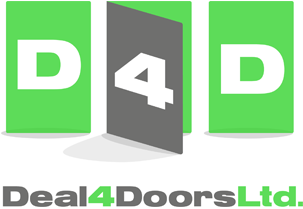Securing your home starts with choosing the right lock. With numerous types of locks on a door available, it can be challenging to decide which one offers the best protection for your property. Whether you have a timber, composite, or uPVC door, understanding the strengths and weaknesses of each lock type is crucial to making an informed decision.
In this guide, we’ll explore common door locks, answer frequently asked questions such as what type of lock is on a composite door, what type of lock is on a uPVC door, and recommend the best type of lock for a second lock on door. Plus, we’ll link you to helpful resources to maintain your doors and hardware.
Why Choosing the Right Lock Matters
Your door lock is the first barrier against burglars. Even the sturdiest door material won’t keep your home safe without a reliable lock. A proper locking mechanism:
- Prevents unauthorized entry
- Meets insurance and safety standards
- Offers peace of mind for you and your family
Understanding UK standard door dimensions can also help ensure your chosen lock fits properly and functions correctly.
Common Types of Locks on a Door
1. Deadbolt Locks
Deadbolts are among the most secure locks and are widely used on exterior doors.
- Single Cylinder Deadbolt: Key operated on the outside and a thumb turn inside.
- Double Cylinder Deadbolt: Requires a key on both sides, ideal if you have glass panels near the door.
- Lockable Thumb Turn: Offers flexibility to lock/unlock from inside with a key.
Deadbolts are often chosen as a second lock on a door for extra security.
2. Euro Cylinder Locks
If you’re asking what type of lock is on a uPVC door, the answer is usually a euro cylinder lock. These locks are fitted into a multipoint locking system securing the door at multiple points.
Why Euro Cylinders?
- Easy to replace without changing the entire door mechanism.
- Available in high-security versions like anti-snap, anti-bump, and anti-pick.
- Compatible with both uPVC and composite doors.
For composite doors, the euro cylinder is also the go-to option. Knowing what type of lock is on a composite door helps when upgrading or maintaining your home security.
3. Mortice Locks
Mortice locks sit inside the door and are common in wooden doors, especially older homes.
- 3-lever mortice locks are usually for internal doors.
- 5-lever mortice locks meet insurance standards for external doors (look for BS3621 certification).
They are very durable and often combined with other locks like night latches or deadbolts.
4. Night Latch (Yale Lock)
Night latches automatically lock the door when it shuts, providing quick security.
- Easy to operate from inside.
- Can be deadlocked with a key.
- Often used alongside mortice or deadbolt locks.
Adding a night latch is a practical way to install a second lock on a door.
5. Multipoint Locks
Multipoint locking systems secure the door at several points—top, middle, and bottom—usually activated by turning one key or handle.
- Common on composite and uPVC doors.
- Increase door strength and security.
- Often incorporate euro cylinders.
Multipoint locks are highly recommended for modern exterior doors.
What Type of Lock for a Second Lock on Door?
For enhanced security, many homeowners add a second lock on a door. The most popular choices include:
- A deadbolt lock: Provides an extra layer of strong security.
- Night latch: Quick locking and easy to use.
- Chain lock or security bar: Adds protection while allowing limited door opening.
Choosing the right second lock depends on your door type, usage, and security needs.
How to Maintain Your Locks and Door Hardware
Locks require regular maintenance to work effectively. Lubricate your locks yearly and check for any signs of wear or damage. Proper maintenance extends their lifespan and helps prevent lockouts.
For door handles, you can check our guides on how to care for and maintain satin gold door handles and how to maintain black door handles to keep your entire door setup looking sharp.
Other Door Considerations
Besides the lock, consider the door style and size:
- If space-saving is important, explore what is a pocket door options.
- To improve airflow while keeping insects out, learn about how to choose the best fly screen and doors for your home’s needs.
Understanding your door’s measurements is also crucial. Check out UK standard door dimensions for guidance.
Conclusion
Knowing the types of locks on a door and how they relate to your door material helps you secure your home effectively. Euro cylinder locks dominate in uPVC and composite doors, while mortice and deadbolt locks are popular in timber doors.
For additional protection, a well-chosen second lock on a door like a deadbolt or night latch can boost security significantly.
Remember, maintaining your locks and door hardware ensures they remain reliable for years to come. By investing in the right locks and care, you enhance your home’s safety and your peace of mind.
Would you like a detailed guide on fitting or upgrading locks? Just ask!





